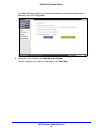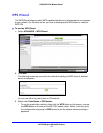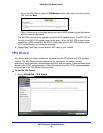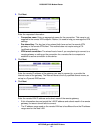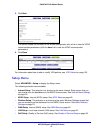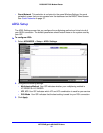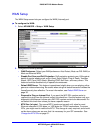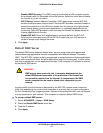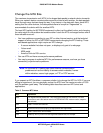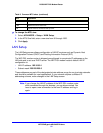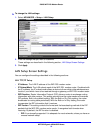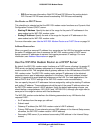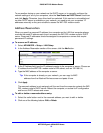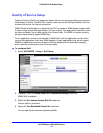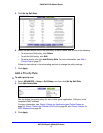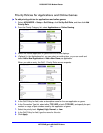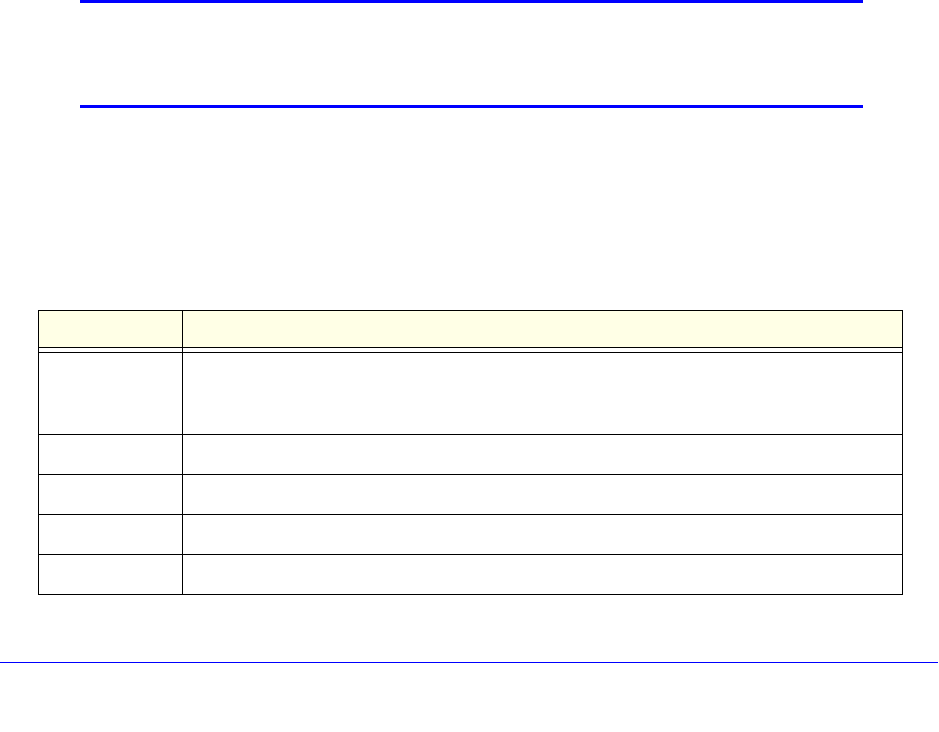
NETGEAR genie ADVANCED Home
51
D6200 WiFi DSL Modem Router
Change the MTU Size
The maximum transmission unit (MTU) is the largest data packet a network device transmits.
When one network device communicates across the Internet with another, the data packets
travel through many devices along the way. If any device in the data path has a lower MTU
setting than the other devices, the data packets have to be split or “fragmented” to
accommodate the device with the smallest MTU.
The best MTU setting for NETGEAR equipment is of
ten just the default value, and changing
the value might fix one problem but cause another. Leave the MTU unchanged unless one of
these situations occurs:
• Y
ou have problems connecting to your ISP or other Internet service, and the technical
support of either the ISP or NETGEAR recommends changing the MTU setting. These
web-based applications might require an MTU change:
- A secu
re website that does not open, or displays only part of a web page
- Y
ahoo email
- MSN port
al
- America Onlin
e’s DSL service
• Y
ou use VPN and have severe performance problems.
• Y
ou used a program to optimize MTU for performance reasons, and now you have
connectivity or performance problems.
Note: An incorrect MTU setting can cause Internet communication
problems such as the inability to access certain websites, frames
within websites, secure login pages, or FTP or POP servers.
If you suspect an MTU problem, a common solution is to change the MTU to 1400. If you are
willing to experiment, you can gradually reduce the MTU from the maximum value of 1500
until the problem goes away. The following table describes common MTU sizes and
applications.
Table 8. Common MTU sizes
MTU Application
1500 The largest Ethernet packet size. This is the typical
setting for non-PPPoE, non-VPN
connections, and is the default value for NETGEAR WiFi DSL modem routers, adapters,
and switches.
1492 Used in PPPoE environments.
1472 Maximum size to use for pinging. (Large
r packets are fragmented.)
1468 Used in some DHCP environments.
1460 Usable by AOL if you do not have large email attachments, for example.



